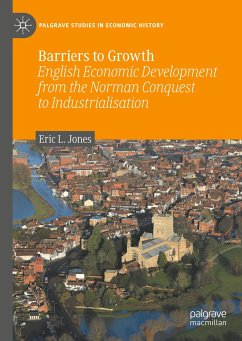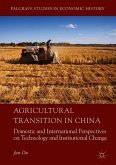This book deals sequentially with major impediments to economic growth and their slow dissolution. It is original and quite different from standard economic history, which has always sought for one prime mover of the industrial revolution after another. These supposed positive forces are usually depicted as novel and little reference is made to inertia. Instead the barriers dealt with here run, in the first section, from early misallocations of resources to nineteenth-century reforms which of their nature indicate the problems to be overcome. The second section deals with more physical impediments and shocks, such as floods and settlement fires. These too are ignored in ordinary treatments, which this book will supplement or even replace. It will be of interest to academic economic historians and practitioners of neighbouring subjects such as economists, historians, historical geographers, and of course their students.
"This is a stimulating, enlightening, engaging, wise and learned book, packed with common sense and sharp analysis, and characterised by a lucid writing style gloriously free from jargon. Jones is a leading scholar at the top of his game, and provides a new perspective and a framework for analysing economic growth that will advance one of the great debates in economic history." (Mark Bailey, EH Net, eh.net, August, 2022)








